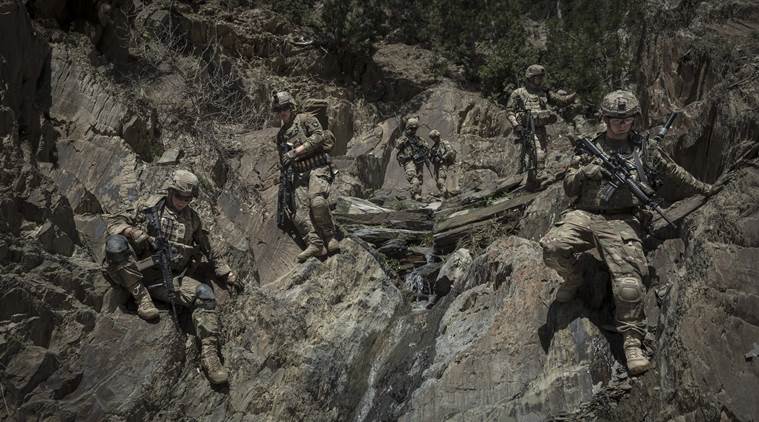By New York Times |Kabul |Published: January 26, 2019 10:35:45 am
New negotiator for Taliban suggests talks at critical stage
As the US has shifted from trying to defeat the Taliban to seeking a negotiated end to the long Afghan war, officials alike have grappled with a question: Just who speaks on behalf of the Taliban, and with how much authority?

Written by Mujib Mashal
As the United States has shifted from trying to defeat the Taliban militarily to seeking a negotiated end to the long Afghan war, US diplomats and Afghan officials alike have grappled with a basic question: Just who speaks on behalf of the Taliban, and with how much authority?
That question seemed to be answered Thursday when the Taliban announced that one of their founding leaders, Mullah Abdul Ghani Baradar, would serve as the new chief negotiator in high-level talks that have reached a critical stage. The appointment brought much-needed clarity and indicated that the Taliban are taking negotiations seriously, according to Western diplomats and Afghan officials.
Baradar is known as a longtime, powerful lieutenant to the Taliban’s founding supreme leader, Mullah Mohammed Omar. The following that Baradar commands among the Taliban’s rank and file could help make a deal negotiated by him more acceptable, officials said.
43s

Russia's Lavrov delivers speech at Afghanistan Taliban talks
Russia’s Foreign Minister Sergei Lavrov attends talks between Afghan leaders and the Taliban in Moscow.
Word that a noted Taliban leader would be helping lead the talks was a sign that after eight years of sporadic negotiations, this round could actually show results. With a war now lasting more than 17 years — America’s longest — the major stakeholders have signaled they are ready for a compromise. The Taliban want the U.S. military to pull out, and the United States is looking for security assurances.
Baradar’s appointment could also avoid some of the embarrassment of previous efforts at negotiations, like when a shopkeeper posed as the insurgency’s second-in-command, or when a delegation claimed to represent a Taliban leader who had been dead for years.









































No hay comentarios:
Publicar un comentario